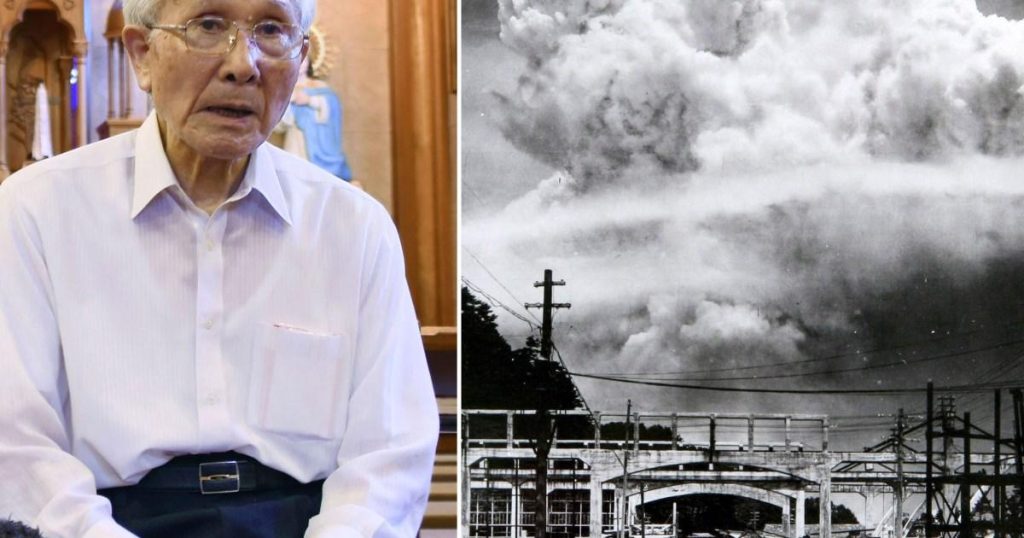The Life and Legacy of Shigemi Fukahori: A Testament to Peace
Shigemi Fukahori, a survivor of the Nagasaki atomic bombing, passed away at the age of 93, leaving behind a legacy of peace advocacy forged in the crucible of unimaginable suffering. His life, tragically marked by the horrors of nuclear war, became a testament to the enduring human spirit and the unwavering pursuit of a world free from violence. On August 9, 1945, at the tender age of 14, Fukahori witnessed firsthand the devastating power of the atomic bomb, an experience that would forever shape his life’s trajectory. Working at a shipyard merely two miles from the hypocenter, he was thrown into a world of unimaginable destruction and loss, losing his family and bearing witness to the unspeakable suffering of countless others. The searing image of a person’s skin melting upon his touch remained etched in his memory, a constant reminder of the inhumanity of war.
For years, the weight of these memories and the profound sense of powerlessness kept Fukahori silent, unable to articulate the horrors he had endured. The trauma of the bombing, compounded by the societal stigma surrounding survivors, created a barrier that prevented him from sharing his story. It wasn’t until he met a fellow survivor of the Guernica bombing during the Spanish Civil War, a man who shared a similar experience of youthful trauma, that Fukahori found the strength to break his silence. This encounter, marked by shared understanding and empathy, ignited within him a desire to speak out, to ensure that the lessons of Nagasaki were never forgotten.
Fukahori’s transformation from a silent survivor to a vocal peace advocate marked a turning point in his life. He dedicated his remaining years to sharing his story with the world, particularly with younger generations, whom he saw as the inheritors of the responsibility for peace. He often addressed students, urging them to take up the "baton of peace" and work towards a future free from the threat of nuclear annihilation. His message resonated deeply, inspiring countless individuals to join the global movement for peace and disarmament.
Fukahori’s advocacy extended beyond the classroom, reaching the highest echelons of religious and political leadership. In 2019, he had the distinct honor of presenting a wreath of white flowers to Pope Francis during the pontiff’s visit to Nagasaki, a poignant moment that symbolized the shared commitment to peace and reconciliation. The following year, he represented the bomb victims at a ceremony, delivering a powerful "pledge for peace" that underscored his unwavering determination to make Nagasaki the last city to ever suffer the devastation of an atomic bomb.
Fukahori’s life story serves as a powerful reminder of the human cost of war and the urgent need for peace. His experiences, though harrowing, fueled his unwavering belief in the possibility of a better future, a future where the horrors of Nagasaki are never repeated. His legacy lives on in the hearts and minds of those he touched, inspiring continued efforts towards a world free from the threat of nuclear weapons.
The atomic bombings of Hiroshima and Nagasaki, the only instances of nuclear weapons used in warfare, resulted in the deaths of an estimated 246,000 people. These devastating events, which brought a swift end to World War II, left an indelible mark on human history, serving as a stark reminder of the destructive potential of nuclear weapons. Fukahori’s life, intertwined with this tragic chapter of history, became a symbol of resilience, hope, and the enduring pursuit of peace. His passing marks the end of an era, but his message of peace continues to resonate, urging us all to work towards a world where such horrors are never repeated.
The Urakami Catholic Church, located a mere 500 meters from the hypocenter of the Nagasaki bombing, played a significant role in Fukahori’s life and legacy. This church, a symbol of resilience and faith, survived the blast and became a focal point for the community’s healing and recovery. It was within the walls of this church that Fukahori’s funeral service was held, a fitting tribute to a man whose life was so deeply intertwined with the history and spirit of Nagasaki. His daughter represented the family at the service, carrying forward the torch of peace that her father had so diligently carried throughout his life.


